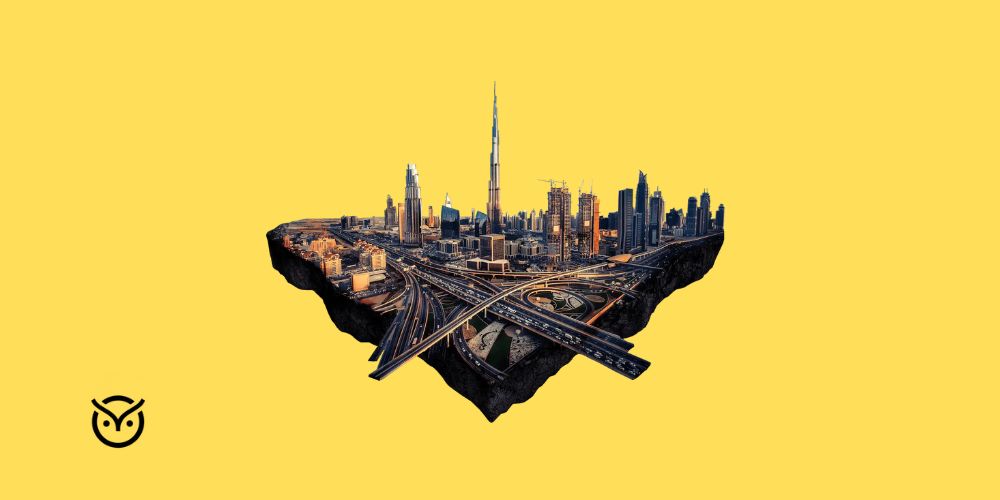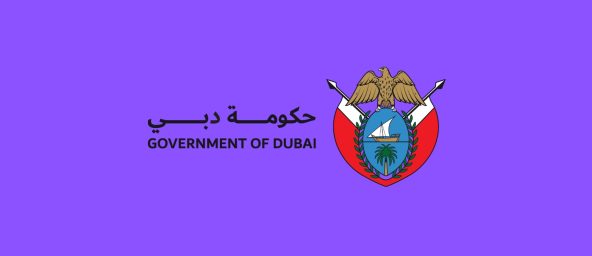
TL;DR
- Why is Dubai so rich: It moved early from oil to many income sources
- Oil now contributes under 1% of its GDP, and non-oil sectors dominate
- Tourism, trade, finance, real estate, and logistics are major growth areas
- Hussain Sajwani and Al Ghurair are the richest people on Dubai lists
- Finance, tourism, and tech jobs pay well, but costs bite
- Follow UAE employment laws, note HR automation advantages for the UAE
There’s a question many people ask when they see skyscrapers, luxury cars and international workers in Dubai: why is Dubai so rich. How did this desert city turn into a magnet for wealth? What kind of wealth? And who gets to enjoy it?
In this blog, you will learn how Dubai built its wealth, how it keeps growing without depending on oil, what that means for people moving there for work, and concrete steps you can take if you are planning to join them in this city of opportunity.
The Origins of Dubai’s Wealth

Dubai started out as a modest fishing and pearl-diving village. In the early 20th century, it traded with India, Persia, and East Africa. But the major shift came in the mid-20th century when oil was discovered in the region (mostly in Abu Dhabi but with some impact on Dubai’s wealth, too). Oil revenues gave the funds to build ports, roads and infrastructure. Those were needed to connect Dubai to the world.
However oil alone did not define Dubai’s identity. The rulers invested those early profits into trade, into building a seaport (Jebel Ali), an airport, and later into free zones. This laid the foundation for commerce. Over time, dependence on oil dropped. When did Dubai become rich? The major transformation picked pace from the 1990s into the early 2000s as trade, tourism, property started growing fast.
Dubai’s Economic Secrets: How It Diversified

When people wonder why is Dubai so wealthy or how does Dubai make money, the answer lies in diversification. Oil now contributes under 1% of Dubai’s GDP. Over 95% of its economy is non-oil-based.
Here are key sources:
Trade and Re-exports
Dubai’s location between Asia, Africa, and Europe gives it an advantage. Goods arrive in the port, get processed, or simply re-shipped. Free zones (e.g., Jebel Ali Free Zone) reduce tariffs and red tape.
Tourism and Hospitality
Luxury hotels, theme parks, and shopping festivals attract millions. In Q1 2024, Dubai welcomed over 5.2 million international visitors, up 11% vs the same period last year, boosting GDP via accommodation & food services.
Real Estate and Construction
Grand projects like Burj Khalifa, Palm Islands established Dubai’s luxury real estate brand. Real estate contributes a significant slice of growth; in Q1 2024, the real estate sector contributed ~7.3% of emirate’s GDP.
Finance, Banking, Free Zones
Dubai International Financial Centre (DIFC) revenue rose 37% in 2024 to 1.78 billion AED ($485 million), with operating profit up 55%. Such zones attract foreign investment and set favorable tax rules.
Logistics, Transport and Communications
Airports like Dubai International serve as global hubs. Ports are busy. Digital infrastructure grows. All help handle trade flow, tourism, and business operations.
Business Leaders, Wealth Holders and the Richest Person in Dubai
Individuals like Hussain Sajwani (real estate), who has a net worth around US$10.2 billion as of 2025 are examples of how private enterprise feeds into wealth. Also, Abdulla Al Ghurair, known for banking and diversified holdings. These people illustrate how are people in Dubai so rich.
Additionally, the system of governance, business law, incentives, and infrastructure ensured that wealth could grow. For example, there is little to no income tax for many expats, favorable trade laws, and an easy-to-do-business environment. Also, UAE employment law helps ensure employer-employee frameworks are clear (visas, rights, etc.)
Why is Dubai so rich — Build the Economy Puzzle
Economy
Drag each piece into the matching slice. Double tap or press Enter to pick up on mobile.
What This Means for Job Seekers Moving to Dubai

For job seekers, the picture is clear. The same forces that explain why is Dubai so rich also explain why it attracts workers from all over the globe. Non-oil sectors dominate, which means opportunities are spread across many industries.
If you are wondering is everyone rich in Dubai, the answer is no. While you will see Ferraris and yachts, not every resident is wealthy. Many migrant workers earn modest incomes. But compared to several regions, Dubai provides tax-free pay, global career exposure, and opportunities in major hubs like DIFC and Dubai Internet City.
The demand is strong in areas like hospitality, logistics, finance, healthcare, construction, and increasingly in technology. Thanks to the growth of AI, fintec,h and e-commerce, specialists in digital fields are sought after. This is where the HR automation advantage for UAE becomes relevant: companies are hiring faster, using smarter tools, and improving employee experience.
For workers, this means both higher expectations and better chances. Dubai rewards skill, adaptability, and global mindsets.
Practical Steps for Job Seekers Considering Dubai

If you are planning a move, here’s what matters most:
Understand the Legal Framework
Always check the rules under UAE employment law. Contracts, visa terms, and benefits are structured differently from those in other countries. Knowing your rights and obligations saves trouble later.
Target Growing Industries
If you ask how does Dubai earn money today, the biggest contributors are trade, tourism, real estate, finance, and technology. These are where the jobs are. Expats fill roles in banking, IT, healthcare, and hospitality while government jobs in the UAE remain highly competitive and mostly reserved for citizens, with limited openings for specialized expat roles.
Research the Market Before Moving
Many people wonder how are people in Dubai so rich. The truth is, wages vary widely. Senior executives or those tied to Dubai sheikhs and elite family businesses may earn millions. At the same time, entry-level service roles can pay much less. Do market research and set realistic expectations.
Network and Build Relationships
Dubai is a relationship-driven market. Meeting people, attending events, and connecting with professionals can make a big difference. Many openings are shared through personal circles before they hit job boards.
Prepare Financially
Living costs can be high. Rent is often the biggest burden. Salaries may look big on paper but plan for housing, transport and schooling (if applicable).
Stay Informed on Key Players
Knowing who the richest businessman in Dubai is or who the richest person in the UAE might sound like trivia but it reflects where capital flows. Many of these leaders own conglomerates that drive job growth.
Practical Steps — Progress Tracker
-
1
Visa
Secure an offer, choose the right visa type, confirm contract terms and sponsorship.
-
2
Housing
Set a budget, shortlist areas near work, plan for deposit and Ejari registration.
-
3
Networking
Join industry meetups, connect with peers, and ask for informational chats.
-
4
Finance
Open a local bank account, track costs, plan for insurance and schooling if needed.
-
5
Target Industries
Prioritize roles in trade, tourism, finance, tech, logistics, real estate.
Conclusion
Dubai is more than a luxury travel destination. It’s a living case study in how a city can move from oil dependency to a global hub of trade, finance, tourism and technology.
For job seekers, the takeaway is simple. Don’t get lost in the myth that everyone in Dubai is rich. Instead, focus on where the real opportunities are. With the right skills and awareness of the market, you can turn Dubai into your own city of dreams.
Dubai Jobs — FAQs
Hospitality, construction, healthcare, finance, IT and logistics offer consistent opportunities for expats. Tech and e-commerce are growing fast.
No. English is the main business language. Arabic helps in government or legal roles but most private companies operate in English.
It’s competitive. Many applicants target high-paying sectors like banking and tech. Networking and specialized skills improve chances.
Salaries vary by industry. Service roles may start at $1,000–$2,000 per month while professionals in finance or IT can earn $5,000–$15,000 per month or more.
Yes. It offers international exposure, tax-free salaries and networking with global firms. However, fresh graduates should manage expectations as entry roles may not match the luxury lifestyle image.




